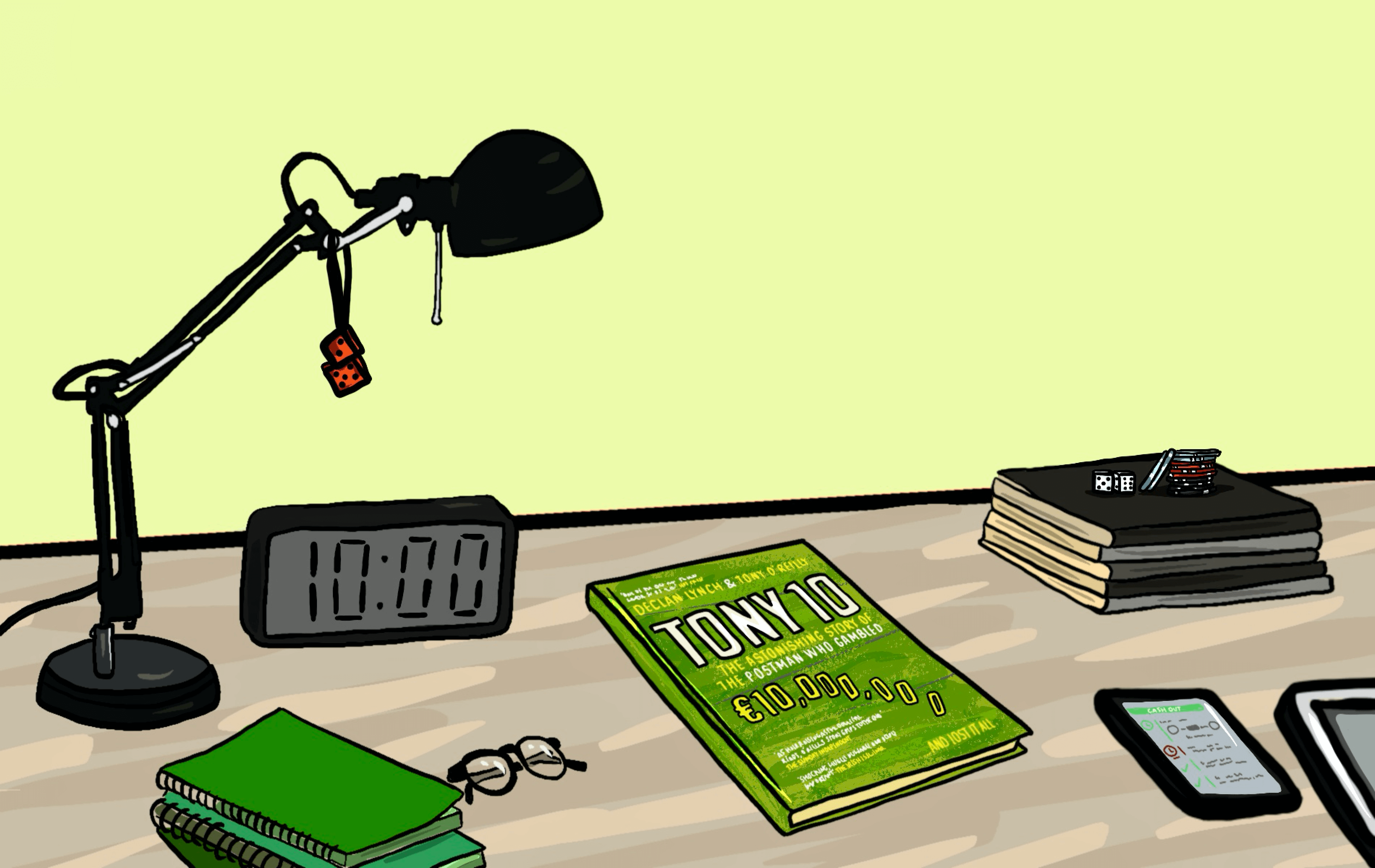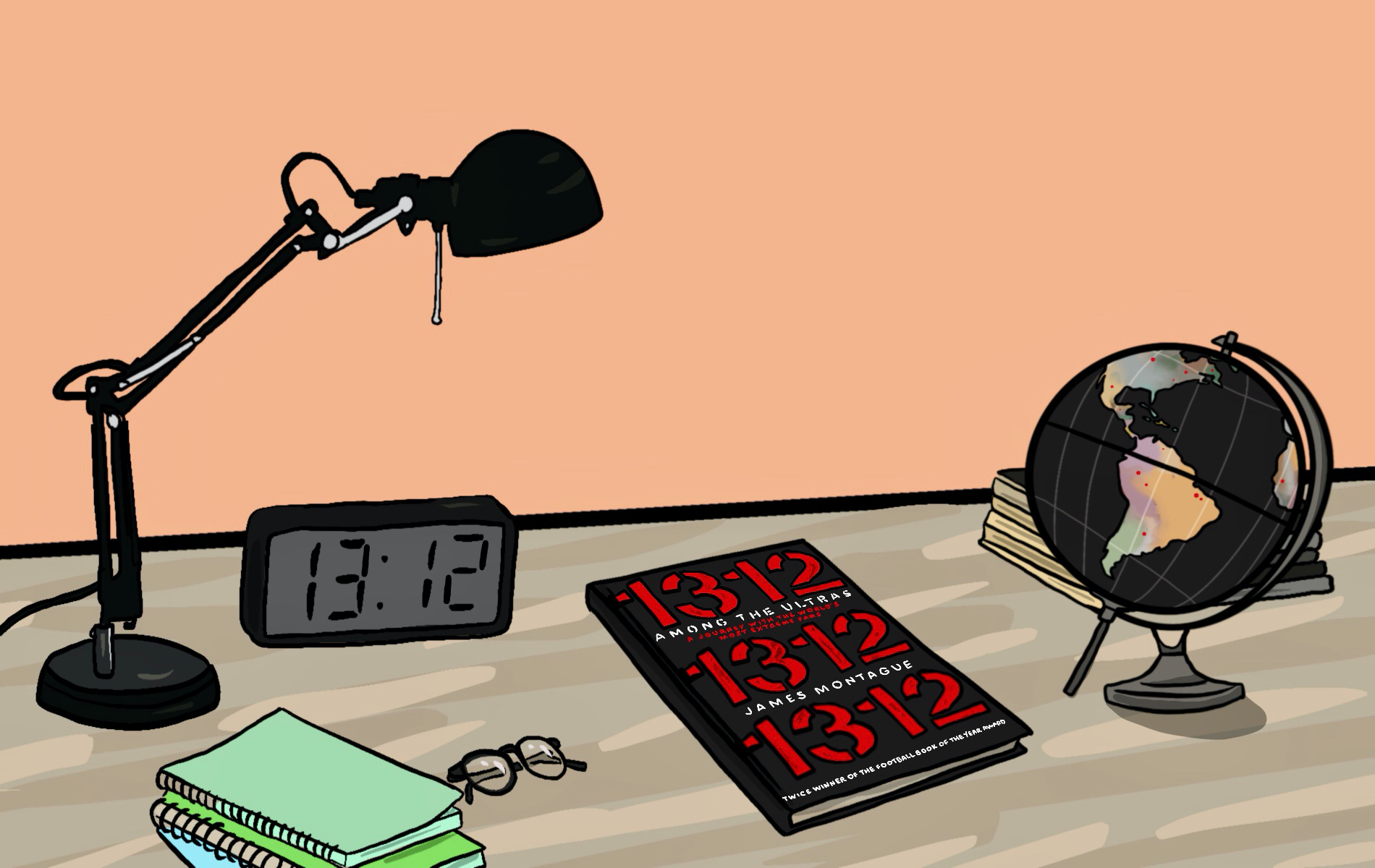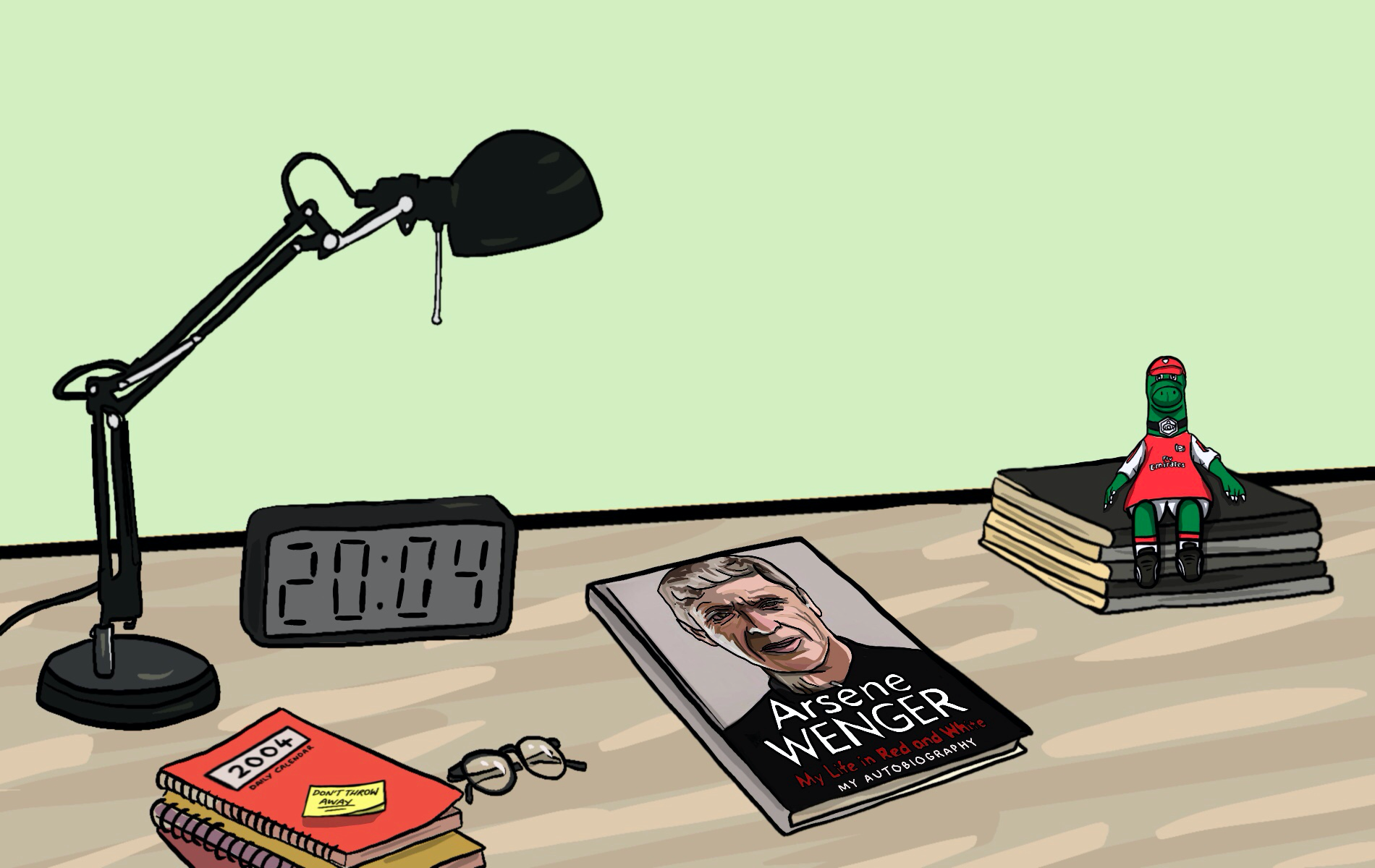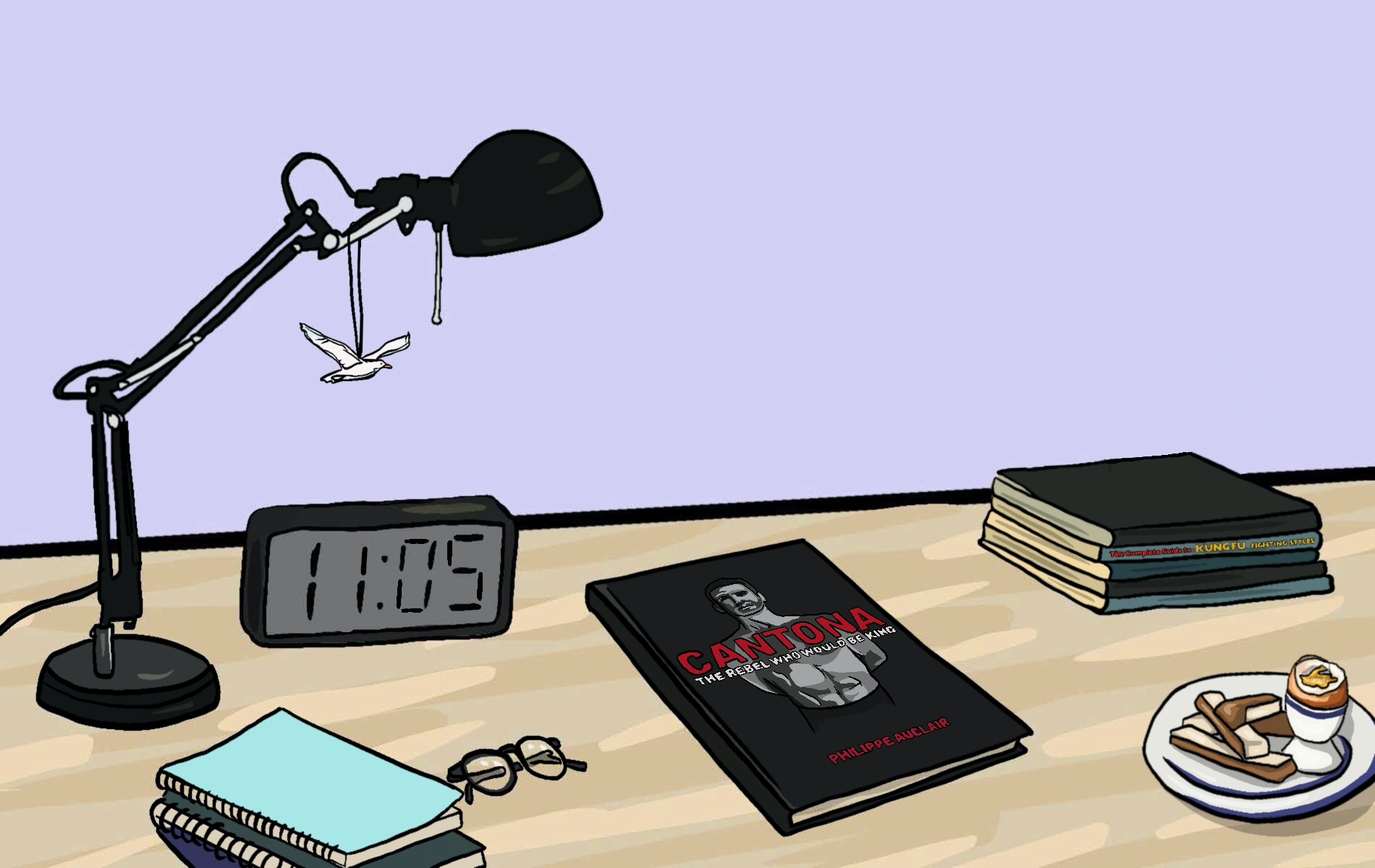Tony 10: The Astonishing Story of The Postman who Gambled €10,000,000 (2018)
by Declan Lynch and Tony O’Reilly
On 19 June 2016, I watched one of the best games of football that I have ever experienced to this day. It was Switzerland versus France in a late group stage game that would see the Swiss progress to the last sixteen of the European Championships and France top the group. The score? 0-0. This was the day that my father and I discovered “in play betting”. Suddenly, every goal-kick, throw-in, foul, card and corner became as sort after as a last-minute winner for your club or country. After some commotion, my mother came downstairs to see what all raucous cheering was about – she didn’t think England were playing that day, and she was certainly not wrong. She came downstairs to find her son and husband bonding over a shockingly dull game between two nations in which they had absolutely no affiliations; embraced in each other’s arms, they were celebrating a French corner with only four minutes and fifty-nine seconds on the clock (50p on a “corner in the first five minutes” at 9/1). What a time to be alive.
The Euros of 2016 rolled out with father and son more than doubling their initial £20 start-up credit, predominantly due to Antoine Griezmann coming in as top scorer (thanks again, Antoine). Four years later and we are currently £18.09 in credit. After withdrawing our Griezmann funds and stubbornly refusing to top-up the account, we are just under £2 off where it all started – but this just goes to show that we are not serious gamblers. I have never actually owned a betting account myself, preferring to hand a quid over to my Dad rather than watering the slippery slope with a unique username of my own. I have been horse-racing and to the dogs only a handful of times and seem to only really partake in sweepstakes for FA Cup finals, Fantasy Football or international tournaments. Recently though, a few pals and I tried our luck in a weekly accumulator which, amounting to nothing, has since fizzled out (despite the spreadsheet and quasi-legal contract that was drawn up together). I am lucky in a way. Yes, I have never won much, but it is safe to say that I haven’t lost an awful lot either.
I first heard about Tony O’Reilly on a special episode of the Football Weekly podcast from The Guardian. The show centred on the moral and ethical consequences of gambling and its almost symbiotic relationship with the world of sport. Regular panellist and fellow Irishman, Barry Glendenning introduced Tony’s story, which made headlines across the British Isles some years earlier, whereby a seemingly ordinary postman had embezzled millions of euros from his day job as a local branch manager and used it to fuel a relentless and destructive gambling addiction. O’Reilly’s book – Tony 10: The Astonishing Story of The Postman who Gambled €10,000,000 (2018) – was praised as a ‘a must read’, a sort of cautionary tale of our times. And so, I bought a copy – and not just because my Dad is a postman.
Taking his Paddy Power username for its title, this book centres around a monstrous 660-page document, otherwise known as Tony 10’s “betting history”. Casting the hyperbolised leitmotif of luck to one side (this book seems to delight in reminding us of the cliched names of horses such as ‘ride your luck’ so as to weave a narrative driven by fate, probability and chance) the figures alone are astounding – what started with a €50 Paddy Power voucher and a €1 stake would quickly become tens-of-thousands splashed on an array of sporting events across the globe, peaking at a total of €10,490,460.66. Tony’s gambling destroyed many relationships, on both a personal and professional level, with serious implications for his own mental and physical well-being. This narrative passes through the many stages of addiction, documenting one man’s journey through Hell and back.
Yet, he is not led by the light of Virgil, and is instead goaded by a more Mephistophelean character in Paddy Power and his fellow Machiavellian bookmakers. A pivotal turning point in this story is when Tony receives a tantalising phone call from what seems like Mr Paddy Power himself, offering him exclusive promotions and match-day perks, which sparks an outrageous spree of unfathomable wins and losses. After a slow start, (we don’t actually hear from Tony for 161 pages as the book is actually penned by Declan Lynch, author and columnist for the Sunday Independent), the narrative gains momentum as the protagonist crashes through a life of near misses, uncontrollable anxiety, and deceit with truly life-changing consequences. It is clear that the chief architects of this Hell are the bookmaking corporations that use manipulative strategies to ensnare vulnerable individuals and bleed them dry. Tony O’Reilly was simply one small mouse caught in rather large trap.
The influence of betting upon the global world of sport is pervasive. Just look at the top two tiers of English football for a start, seventeen out of the twenty-four (Sky Bet) Championship sides are sponsored by bookmakers, as is half of the Premier League. Super Saturday’s, Sunday’s and Monday’s alike are equally jam-packed with betting promotions despite some stringent advertisement regulations. Turning to my smartphone, again I find more personalised ads (cheers, Google) encouraging me to sign up to various gambling sites along with reminders for other upcoming sporting events. Gambling saturation is inescapable for the modern sports fan. On a cold and windy night, you can even take a trip to the Bet 365 Stadium to watch Stoke City, if you want. It seems that the more you look into these companies, the more sinister the tale becomes. Yes, in England, we have the voluntary ‘whistle-to-whistle’ ban to reduce the bombardment of betting adverts during televised matches, but is it really enough? The voluntary element, which is certainly not adhered to by all of the major corporations, should help to answer that question. So perhaps not.
On a cold and windy night, you can even take a trip to the Bet 365 Stadium to watch Stoke City, if you want.
While Tony’s own voice carries notable tones of remorse, self-loathing and regret, it is clear that there is a greater social responsibility at play here. Ironically, I have placed bets since reading his account, and this book will not necessarily stop me from doing so in the future either. But it has certainly made me question why the gambling industry has been allowed to reach such heights and operate in the way in which it does. One thing is made painstakingly clear upon reading this book: Tony’s addiction to gambling was a kind of illness – one that required radical interventionist treatment. His story is a worrying omen, a problematic sign of our times, warning us that without greater societal understanding and engagement, gambling addictions can have truly devastating consequences.



